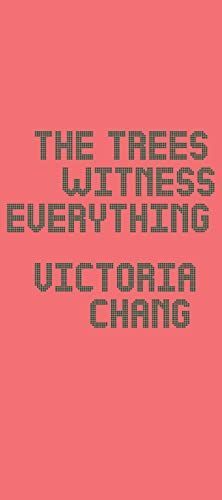
The Trees Witness Everything
A lover of strict form, best-selling poet Victoria Chang turns to compact Japanese waka, powerfully innovating on tradition while continuing her pursuit of one of life’s hardest questions: how to let go. In The Trees Witness Everything, Victoria Chang reinvigorates language by way of concentration, using constraint to illuminate and free the wild interior. Largely composed in various Japanese syllabic forms called “wakas,” each poem is shaped by pattern and count. This highly original work innovates inside the lineage of great poets including W.S. Merwin, whose poem titles are repurposed as frames and mirrors for the text, stitching past and present in complex dialogue. Chang depicts the smooth, melancholic isolation of the mind while reaching outward to name—with reverence, economy, and whimsy—the ache of wanting, the hawk and its shadow, our human urge to hide the minute beneath the light.
Reviews
azliana aziz@heartinidleness
miya@liliaceae
Mal @bxrlieo
Highlights
Mal @bxrlieo
Page 28
Mal @bxrlieo
Mal @bxrlieo
Mal @bxrlieo